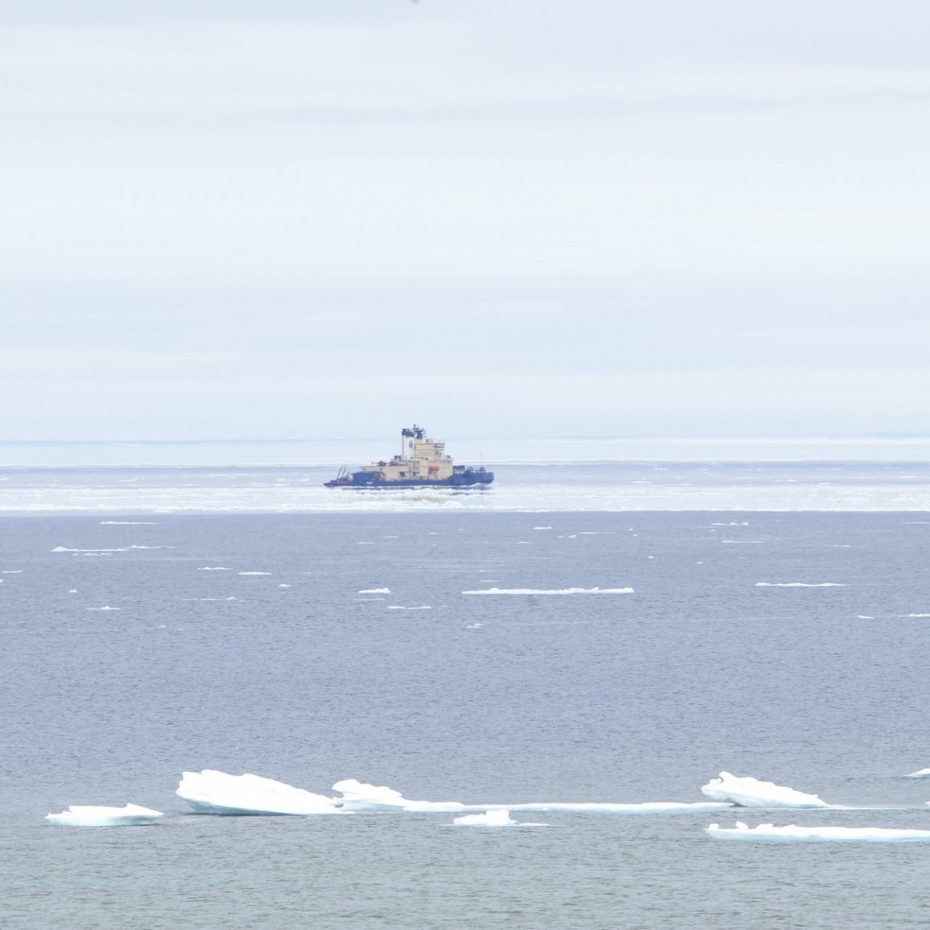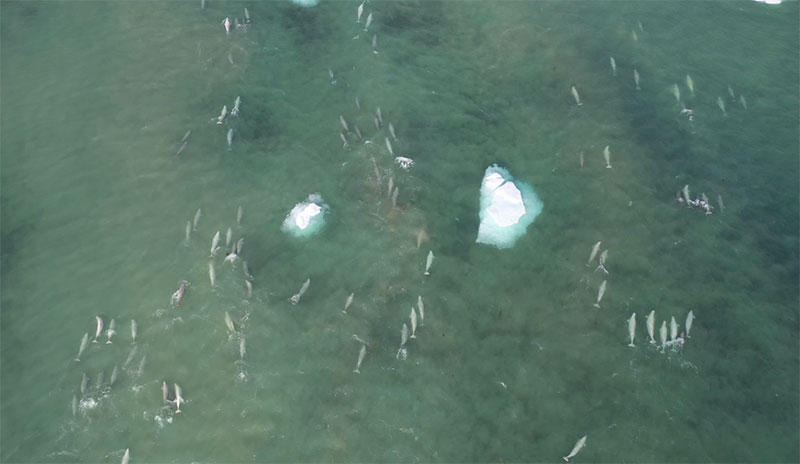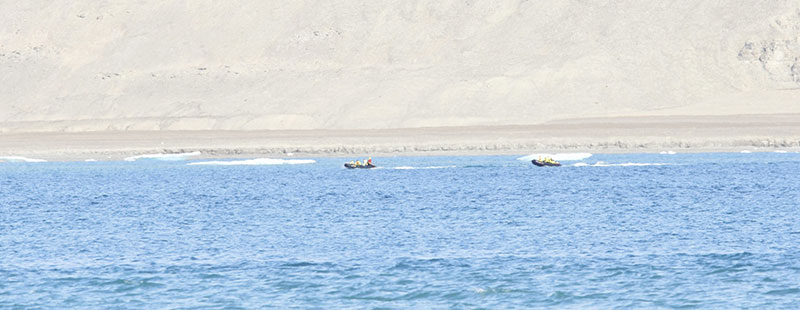RESEARCH VESSEL HARASSES 700 NURSING BELUGA WHALES
Arctic Watch

Arctic Watch
July 30, 2019 | Arctic Watch
Shocking footage shows hundreds of beluga whales fleeing their nursery after the Swedish Icebreaker Oden deploys two zodiacs into Cunningham Inlet.
Along the shores of Cunningham Inlet, July 28th started like any other day. Guests began to emerge from their tents and the midnight sun climbed over Arctic Watch Wilderness Lodge. Large pans of ice dominated the skyline of the Northwest Passage and not a breath of wind disturbed the calm water of Cunningham Inlet. For twenty years, the Weber family has operated Arctic Watch, a wilderness lodge situated along the banks of one of the largest known beluga nurseries in the world. The whales enter the sheltered inlet for just a few short weeks each year to nurse their young and frolic in the warm river water that spills into the inlet.
This coexistence was altered the afternoon of July 28thwhen a large icebreaker anchored outside Cunningham Inlet. The research vessel launched two zodiacs which entered the nursery. In the twenty years that the Weber family has run Arctic Watch, they have never seen a motorized vessel of any kind, venture into the inlet with the belugas. The zodiacs, which belong to the Swedish icebreaker Oden, motored into the bay while hundreds of beluga whales nursed in the river mouth. Within thirty minutes, the bay completely emptied as the belugas fled from the intruding noise of the two zodiacs.
The researchers aboard the Oden are members of the Northwest Passage Project, a high-profile research expedition which received major funding from the National Science Foundation and partnered with numerous institutions such as the Canadian Wildlife Service, the Smithsonian, and the University of Rhode Island. Using the icebreaker and a helicopter to access remote regions of the Arctic Archipelago, the Northwest Passage Project is said to be a ground-breaking Arctic expedition intending to collect air, water and ice samples. The research cruise was in the middle of their eighteen day voyage through the Northwest Passage when the vessel anchored outside Cunningham Inlet.
Standing along the shore of Cunningham Inlet, Nansen Weber watched as the belugas he has spent his entire career photographing fled in apparent panic as two zodiacs motored right into the river mouth. Nansen grew up in the Arctic and as an adult he has spent his summers on Cunningham Inlet conducting photo identification research of the beluga whales that enter the nursery. In his twenty years observing the whales, he has never seen an event so drastic to cause the whales to empty the bay almost instantaneously. “I have seen the whales leave due to ice being pushed up into their nursery or muddy river water but what we saw when the zodiacs entered the inlet was a completely different event,” said Weber.
Brian Skerry, a renowned photographer and National Geographic Fellow, also happened to watch the event unfold. As part of a multi-year project for National Geographic, Brian had been photographing the beluga whales with Weber for the past three weeks. “That morning happened to have the most whales I had seen in the time I have been here. The whales were especially active that morning and the day was shaping up to be perhaps the best we had seen.”
Known as the canary of the sea, belugas have an extensive vocal range. From shore, Weber and Skerry could hear a cacophony of chirps, gurgles and blows as the whales frolicked in the shallow waters. After the icebreaker was spotted outside the bay, it didn’t take long for this overwhelming sense of ease to change into panic. Skerry recollects, “Two zodiacs appeared in the inlet and within minutes we saw this mass exodus. The number of whales at the river rapidly diminished as they began streaming out of the inlet, leaving behind a considerable wake. After observing the drone footage of them stampeding out, it became clear to me that they were stressed.”
Footage taken by drone shows several hundred whales “stampeding out of Cunningham Inlet”. Note: the ship is in the foreground.
The event was unlike anything the Weber family had ever seen before and the behavioural difference seen in the whales was evident. “In the past, the whales left in small pods and would be dispersed across the inlet. It is clear that this was an intentional and frantic exit. As they streamed out of the inlet, the whales left behind long trails of mud as the cadence of their swim and the force of their tails turned over the ocean floor. Within thirty minutes not a single whale could be found in the bay,” said Weber.
Skerry’s photography specializes in marine wildlife and he has dedicated his work to the protection of ocean ecosystems. He concluded by saying, “From my experience, this event speaks to how precious and fragile this ecosystem is to these animals and how sensitive these animals are to sound. It became crystal clear that this place cries out for protection and conservation.”
From shore, Arctic Watch staff made several attempts to make contact with the two zodiacs. “I was looking through my binoculars with one hand and waving with the other. The drivers of the two boats stopped to regroup and after a brief conversation they took off in the opposite direction,” said one staff member. From the water, the white tents of Arctic Watch Lodge are visible against the stark landscape of Cunningham Inlet. The Oden made no attempts to reach out to the lodge and appeared to evade contact.
We strongly believe that Cunningham Inlet should be restricted to non-motorized traffic. Any careless actions from vessels such as these will directly impact the Cunningham Inlet beluga whale population - one of the last beluga nurseries on the planet.



We understand that booking a trip like this is a big endeavour. Please reach out to us with any questions that you might have regarding your upcoming adventure.